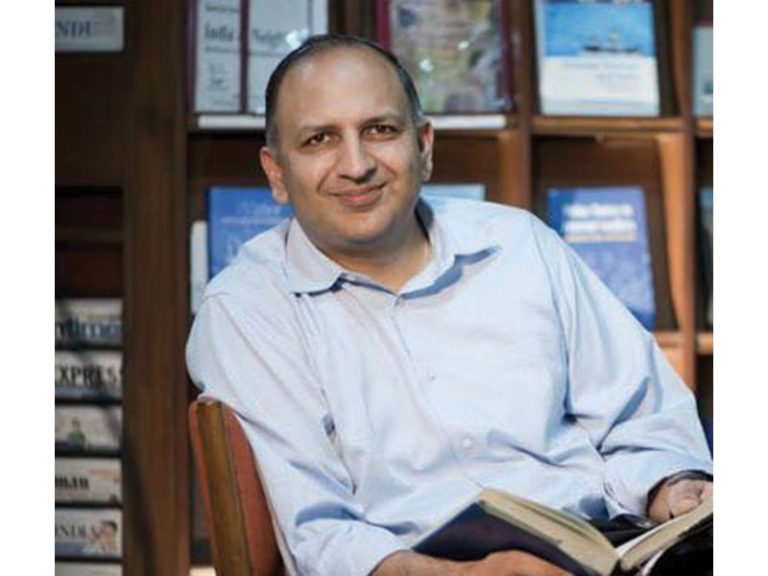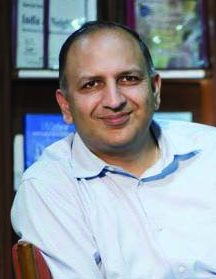Educational delusions endangering Viksit Bharat goal
Dr. Pratap Bhanu Mehta is former President, Centre for Policy Research, Delhi and a renowned public intellectual
India’s only saving grace is that despite institutional dysfunction, Indians are self-learning and have got us to the point where human capital deficiencies are less pronounced
It is a tragic fact about India that education still remains the Achilles heel of its development aspirations. On surface, India’s human capital story has improved in recent times: net enrollment in school, on paper, is close to 100 percent. There is rapid expansion of tertiary and higher education.
The gender gap in primary education has closed and is closing fast in tertiary and higher education. India is slowly improving in science citation indices.
In many states, there is now more political concern for the quality of education. Delhi was the first state in India to try and construct a mass political base around improving public schools. The demand for education, and self-driven enthusiasm of Indian students seems to make lack of human capital less of a binding constraint for India’s development and its 2047 Viksit Bharat goals. Despite these achievements, India’s development prospects are likely to remain deeply vulnerable to its patchy education system.
Here are some worrying signs. First of all, there is no objective measure of how well our education system is doing. There are government assessment reports, NGOs like Pratham have been at the forefront of testing learning outcomes. But there is no reliable measure that allows us to confidently say that our learning outcomes are at least as good, if not better than our competitors. In fact, even if we are doing tolerably well in learning outcomes, we won’t be able to project our quality of human capital to the world. In some ways the focus of our new education policy should be on basics. India, for example, should be a mathematics powerhouse. This powers almost all disciplines now. Unfortunately we are not doing great in identifying and retaining the top one percent talent pool, nor is India doing well in general math education.
Second, there is a bizarre view in India right now that somehow manufacturing requires lower quality human capital than services. Therefore, a turn to manufacturing through industrial policy will create millions of jobs at the lower end of the human capital scale. This assumption is deeply fallacious. Modern manufacturing, where it deploys labour, requires increasingly high-quality human capital. It is not clear whether India has managed the two transitions necessary for structural transformation of the economy: from low productivity agriculture to other sectors, and from low productivity to higher productivity jobs. This is reflected in the fact that for the past decade or so there has been more or less stagnation in rural wages. Even more alarmingly, stagnation in wages for much of the wage and self-employed class that lies below the 8-10 percent in income distribution. How much of this is a product of human capital deficiencies and how much a consequence of other economic weakness is an open question. Yet there is no doubt that the structural transformation to high productivity economy is not happening. Industrial policy has yielded some examples of success, like Apple assembly lines in India. But these are too few and far between.
Third, the state of public higher education remains dismal and is likely regressing. Some science institutions are doing better. But the overall scene remains dismal in three ways. First, we are now seeing cuts in public higher education in India in real terms; the last budget slashed the UGC’s funding. This is utterly myopic since a strong public higher education system is absolutely necessary for achieving our centenary goals. In its absence we will get more educational inequality.
Second, the misallocation of degree structures continues. Sixty percent of Indian students are still enrolled in arts, humanities and commerce streams. This is not because we love the liberal arts. It is because in our system these degrees are, except at a few institutions, “we don’t have to teach and you don’t have to learn” degrees. They are degree granting on the cheap rather than providing real education. And finally, the suppression of academic freedom, the ideological vetting of appointments in Central universities like Delhi University, the conversion of universities into largely examination rackets like CUET means that the pedagogic purposes of universities will not be met.
The private university space will not fill this gap. After some green shoots like Ashoka and Krea, the private university revolution is also stalling, not in terms of new institutions coming up, but in terms of their ability to push India’s quality curve upward. India should have had at least two dozen exemplary private world class universities by now. The fact that Jio was granted tag of Institution of Eminence and yet years after that tag, has still not taken off, tells two things. It exposes how broken is India’s regulatory system. It also tells that India’s Gilded Age which has produced unprecedented billionaire wealth, is simply not translating, via philanthropy, into higher education excellence on the scale that is warranted.
India’s only saving grace is that despite institutional dysfunction, Indians are self-learning and have got us to the point where human capital deficiencies are less pronounced. But this is not going to compensate for the delusions that are being served in the name of education.

















Add comment